So, in Bursa, we decided to make a small hook on our four-wheeled "device incompatible with the iPhone" and drive to Ephesus. I remember a lot of great reviews about it, and the photo of the Library of Celsus reminded me of the Miletus Gate from the Pergamon Museum in Berlin, which once really impressed me. As we were so close it was an awesome chance to see it as I don't really want to spend a whole day of paid all-inclusive sea vacation on such tours. Because the way there and back takes a lot of time and I don't like large bus groups.
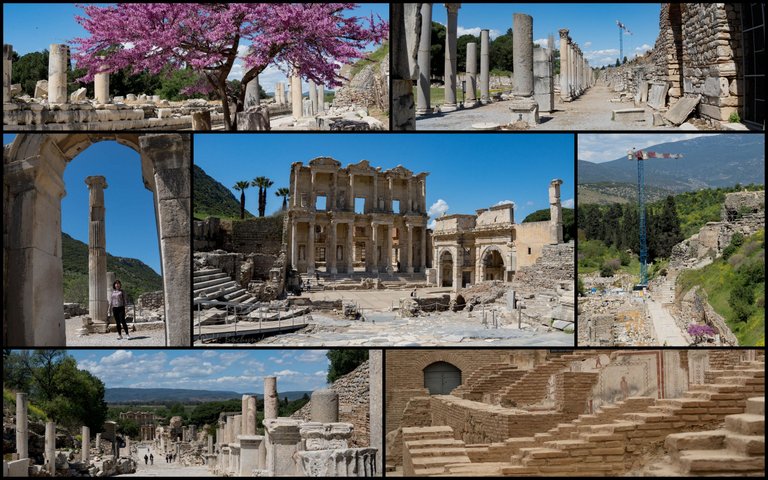
All right, sitting in a cold wet apartment and studying a map with my husband on the last rainy evening in Bursa, we decided to change the route a bit and dedicate the day to the ancient city of Ephesus, near Izmir. We did not dare to change anything radically, although all bookings were free of charge. The fact is that all tourists arriving in Turkey must obtain a HES code. To do this, fill out an online form, which includes all the hotels where we plan to stay, with their addresses and telephone numbers. There was neither the time nor the desire to make changes there.
Strict lockdown in Turkey at the end of April turned out to be another unexpected advantage for this trip. When we saw the latest photos from Ephesus a couple of weeks after returning, the streets of the city resembled human rivers. Ephesus is one of the most visited cities in the world. And there were so few people on our visit that I probably still remember them all in person.
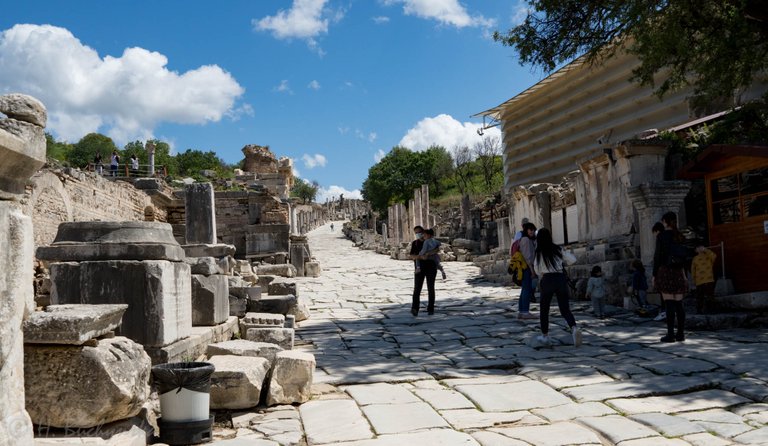 | 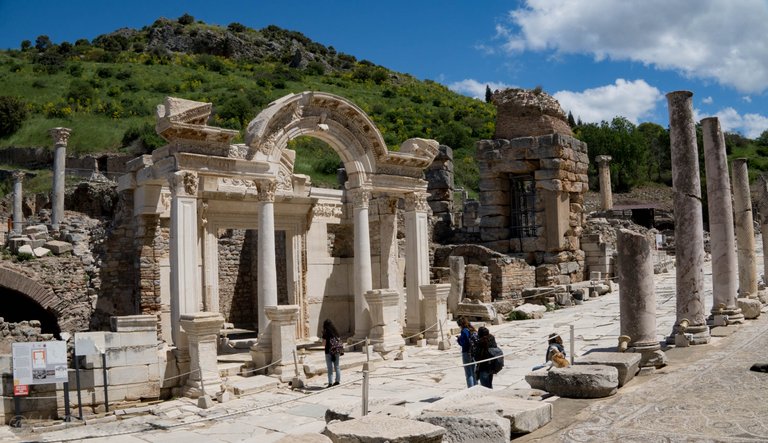 |
|---|


Ephesus is located in the west of the peninsula of Asia Minor, or Anatolia, as it was called by the Greeks. The name Anatolia comes from the Greek word meaning "east". Because this area was the eastern part of Byzantium.
Selçuk is the modern town, to the territory of which the ancient Ephesus is adjacent. The sea is very close.
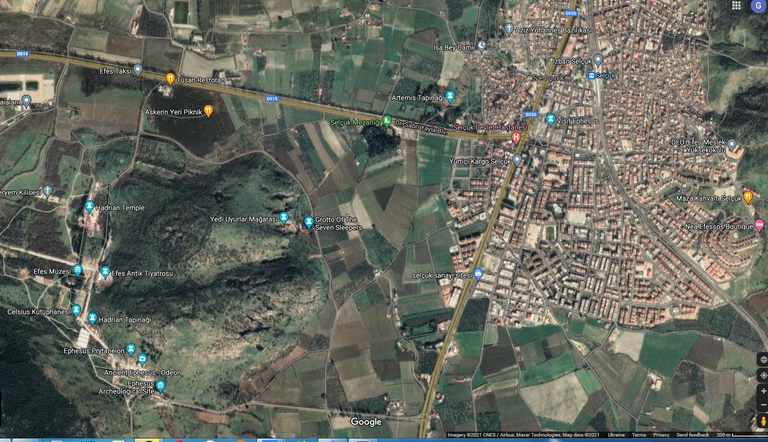
The Temple of Artemis
This was the first attraction we visited. It is located immediately after the exit from the main road, and you can see it for free.
Ephesus had a cult of Artemis for ages. According to legend, Artemis was the twin sister of Apollo and the patroness of all animals that grow and live in fields and forests. Happiness in family life, as well as the birth of children, depended on everything else. The first temple was built so long ago that some legends claim that it was built by the Amazons. It was destroyed in the VII century BC.
The second temple was built during the reign of the Lydian king Croesus (the same one whose name is associated with wealth) in the 5th century BC. This Ephesian temple became one of the seven wonders of the world. It was built of marble and wood, majestic, surrounded by two rows of tall columns, in the temple stood a huge statue of Artemis, made of gold and ivory ...
What was our disappointment when we saw ... this.
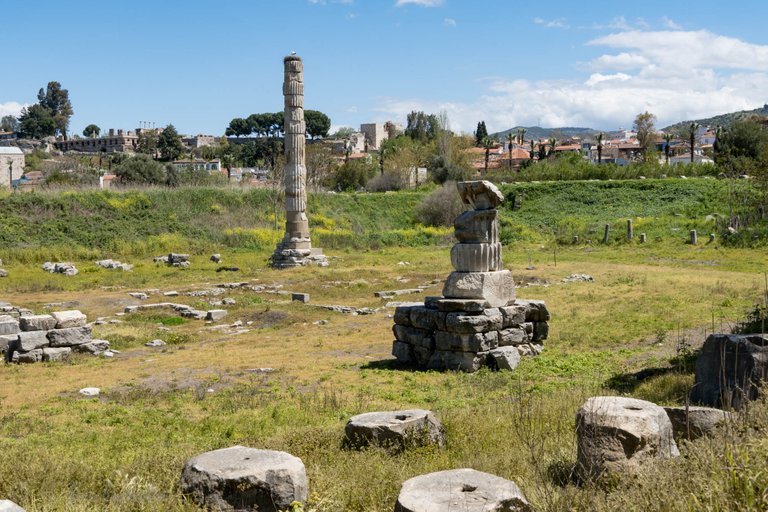
Yes, this one of the 127 columns has survived and stands in the middle of the swamp. That's all temple.
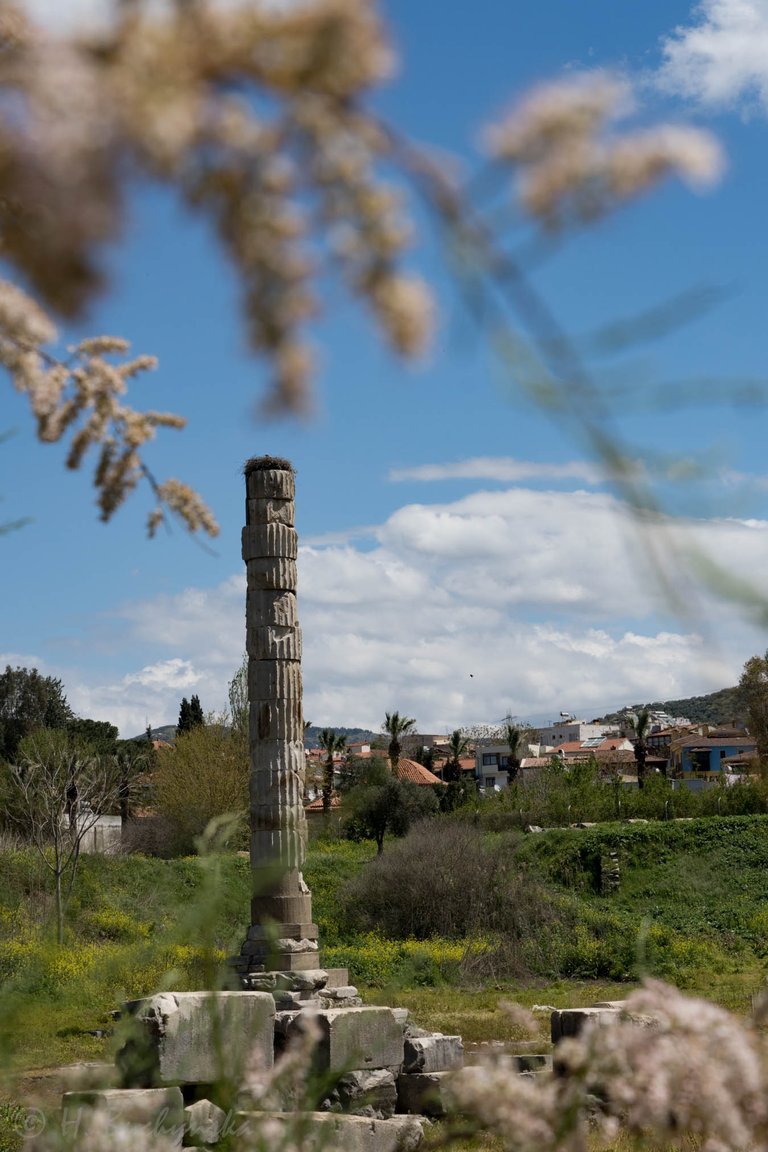 | 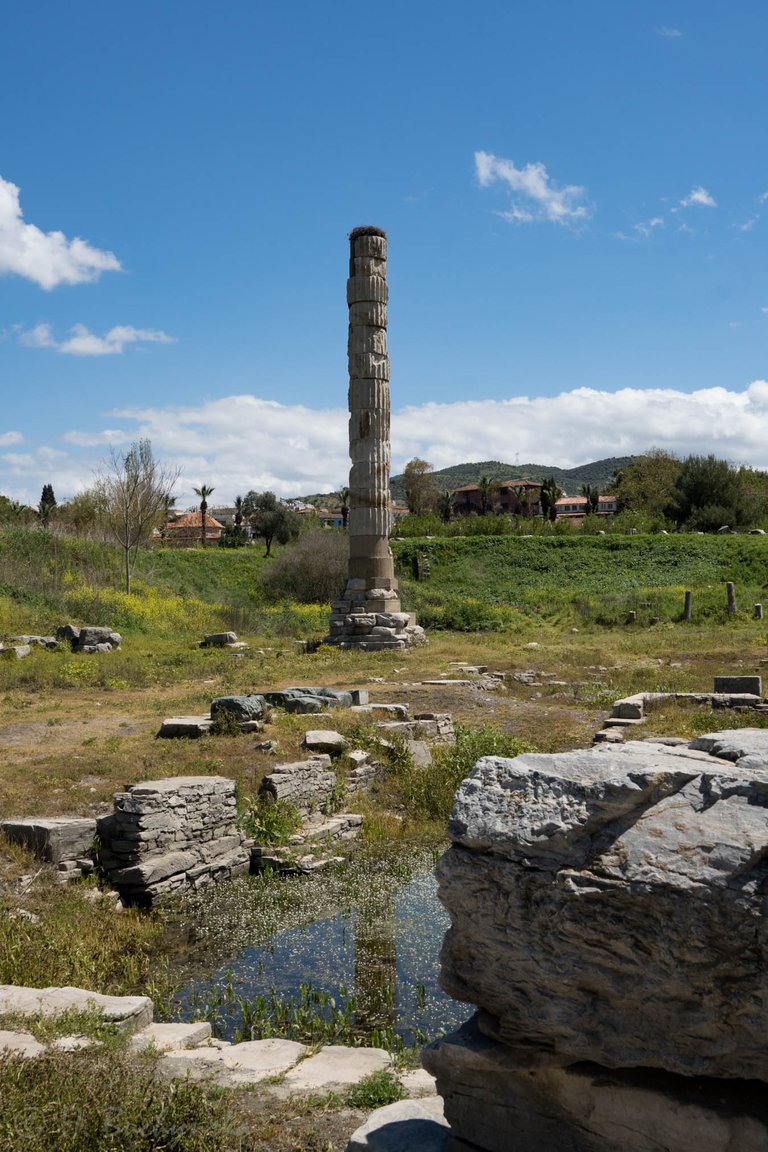 |
|---|
Funny fact. The swamp for the construction of the second temple was chosen intentionally. The architects believed that in such a place the earthquake would be almost imperceptible. And so that the temple would not get stuck in the swamp, a pit was dug under it and filled with charcoal and wool. Therefore, the temple was not destroyed by an earthquake, but by fire. It was burned by "one whose name cannot be named." Guess who?
After the fire, a surviving statue of Artemis was found under the rubble, and this inspired the tireless Ephesians to build the third temple. The cult of Artemis existed here for many more years, but with the advent of Christianity, it went into the past as well as the temple.
Ephesus
From the temple of Artemis to Ephesus Archeological Site itself about one and a half kilometers. The parking area was almost empty, so we stopped the car in the shade of a couple of trees. In fact, the place is open and there are very few shadows.
The entrance ticket is of several types. Therefore, before going to the box office, you need to decide on plans. There are options such as a free paper card, buying a ticket online, an audio guide (for an extra charge), and of course a guided tour.
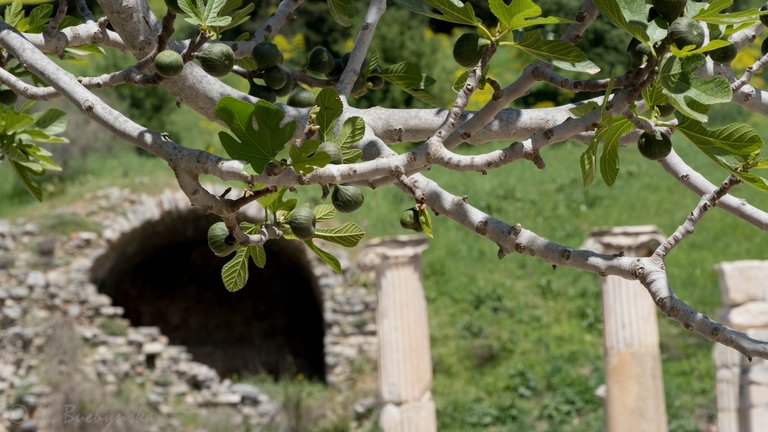
What's interesting about Ephesus? The city was founded around the XV century BC and has gone through many periods in its history. It was a famous center of early Christianity. The apostle Paul lived, taught and preached here (some believe he is buried here). The apostle John came to Ephesus with Mother Mary after the crucifixion of Jesus. He first wrote the Book of Revelation where he was in exile on Patmos Island and completed The Gospel of John at Ephesus where he lived here for the rest of his life.
You only imagine this feeling when you realize which land your sneakers are walking on. I will not retell all pedestrian facts and numbers. Let's better find out what it looks like.
State Agora was a center of public life in ancient Greek cities. It was a market square, a slave market, and a place for public assemblies. Merchants from all over the kingdom came here. Around the agora were temples, government offices, and workshops.
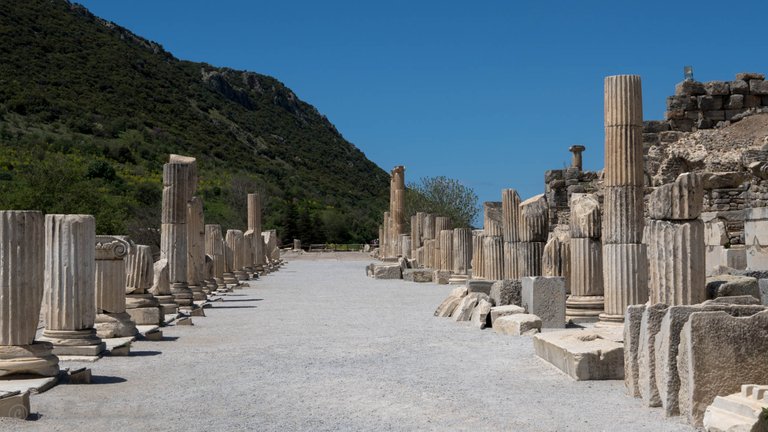
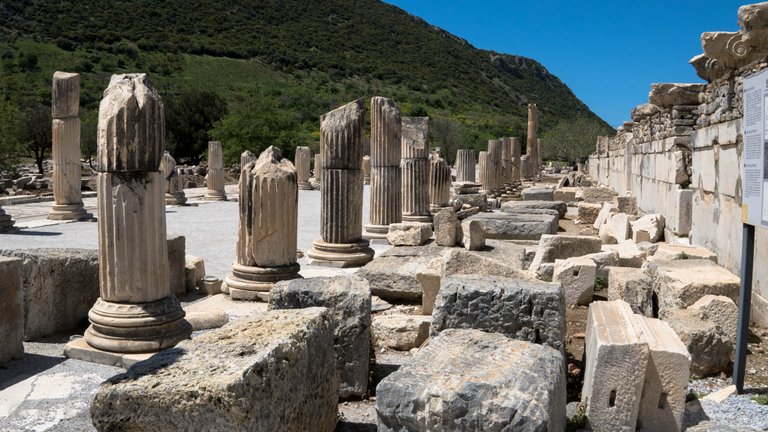 | 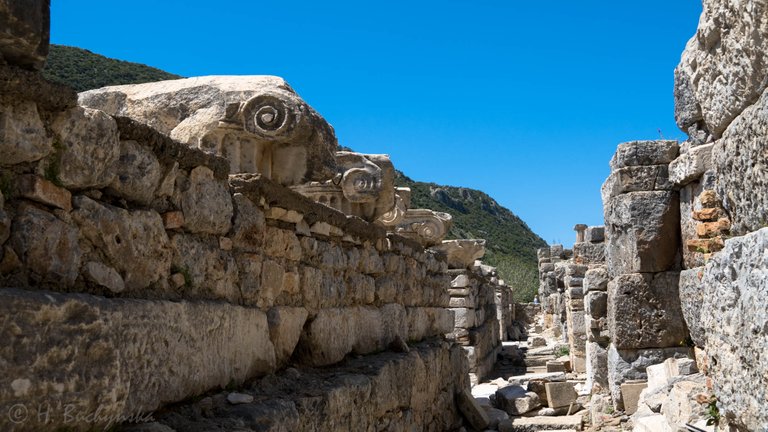 |
|---|
Bath of Varius
Don't confuse with Lord Varys, lol. The famous sophist Flavius Damianus first built the bath during the Hellenistic age, around the 2nd century A.D, and was restored several times throughout the centuries.
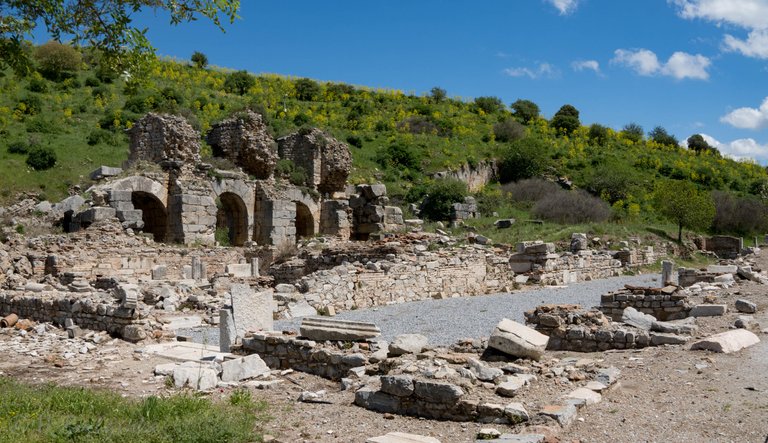
Odeon or Small Еheater is on the left hand. It is located on a hillside.
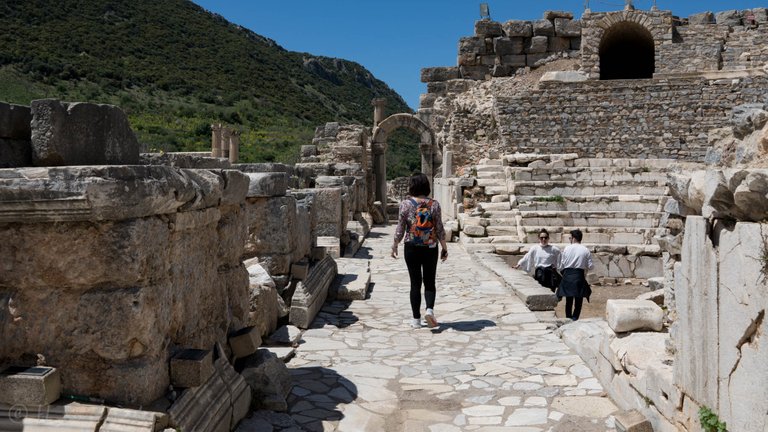
Prytaneion. These remains once served as the official administrative building or the city hall.
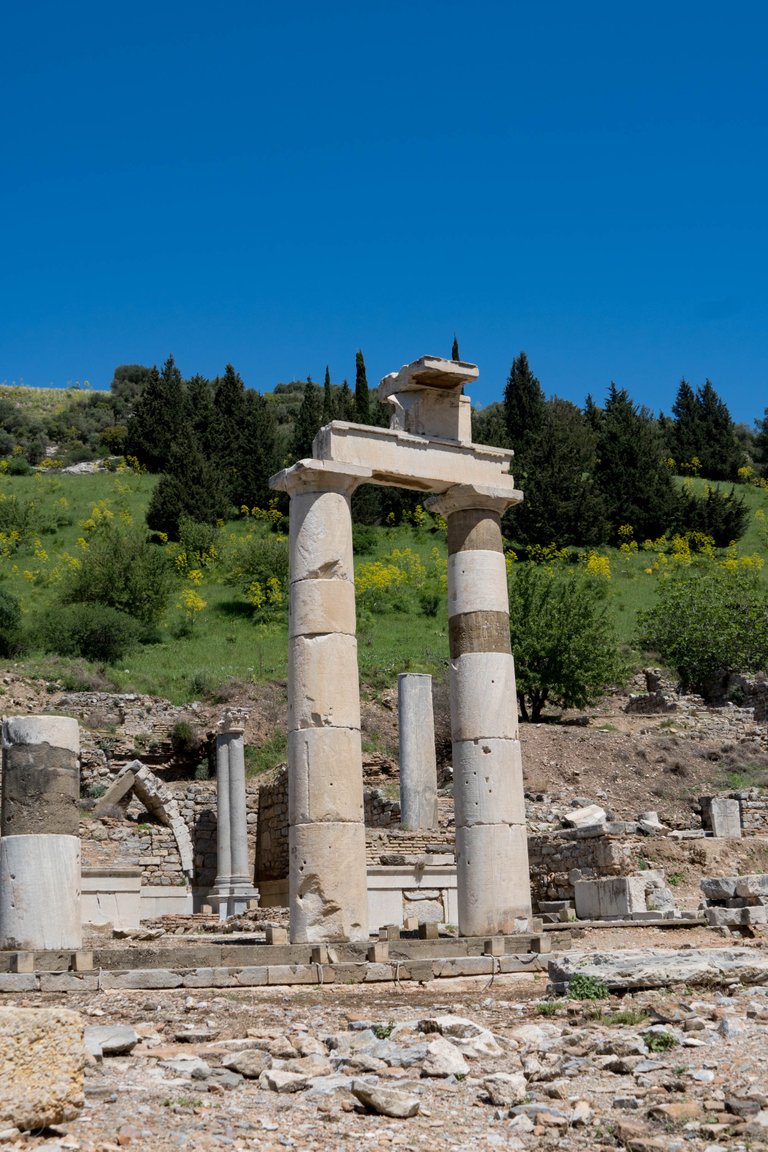
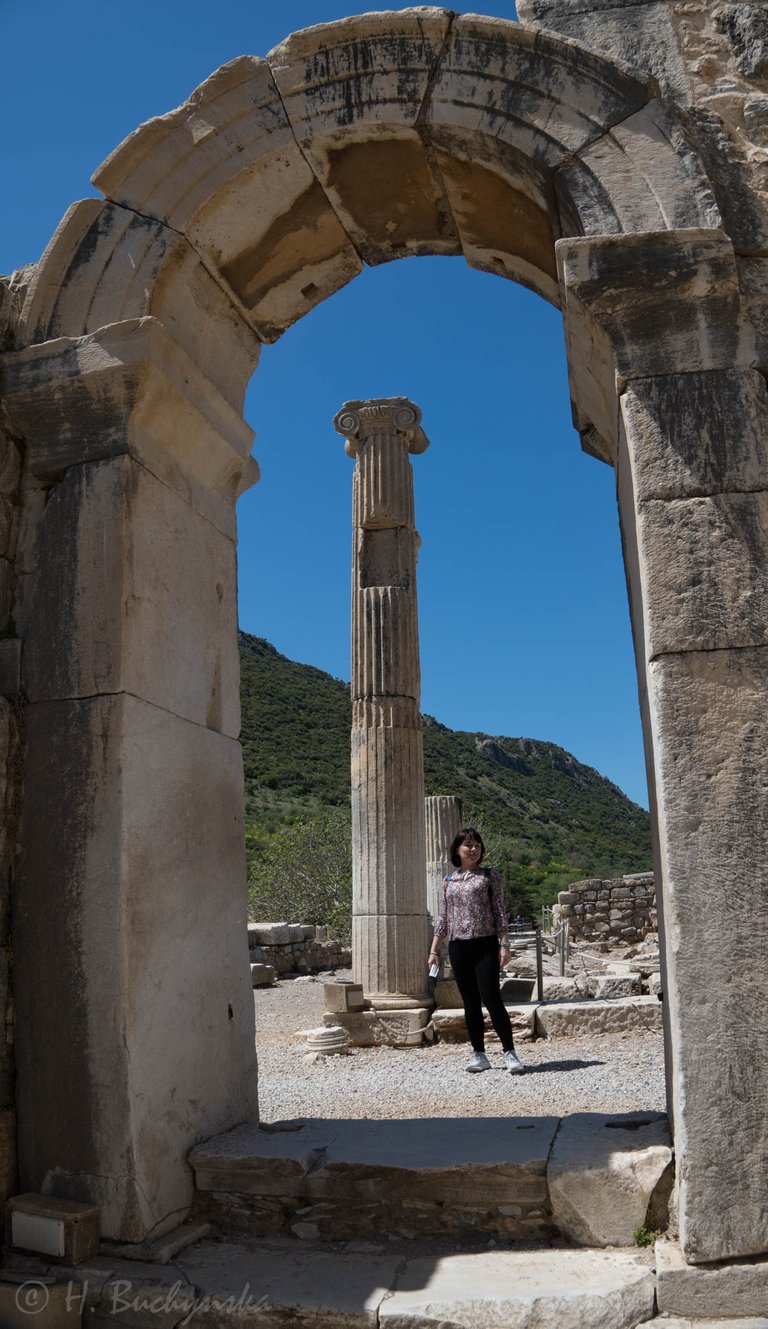
Memnius Monument. The four-sided victory arch was erected to celebrate military victory and the liberation of Ephesus from enemy occupation. Sounds familiar...
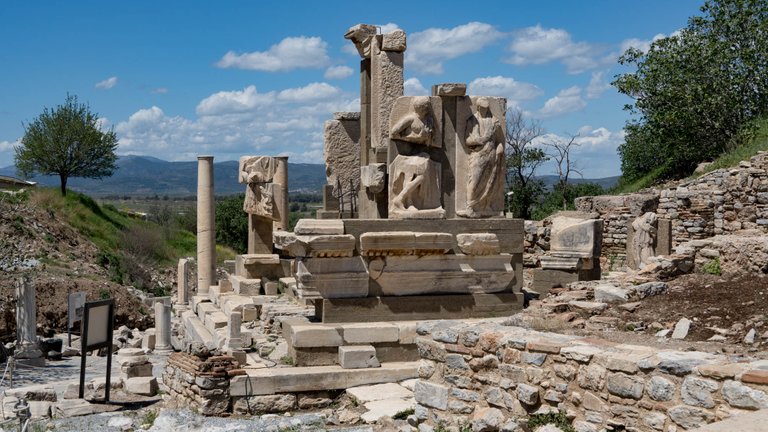
And here, Hercules Gate, the entrance to the Curettes road. Obviously, it separates uptown from downtown. Archeologists believe that narrowed gates prevented access to the pedestrian street from the passage of vehicles. It was a two-story building that had six columns on each floor. Today, we can see only two side columns.
The gate gets its name from the reliefs of Hercules that adorn its columns. Hercules is accepted to be the greatest of Greek heroes and considered the epitome of masculinity.
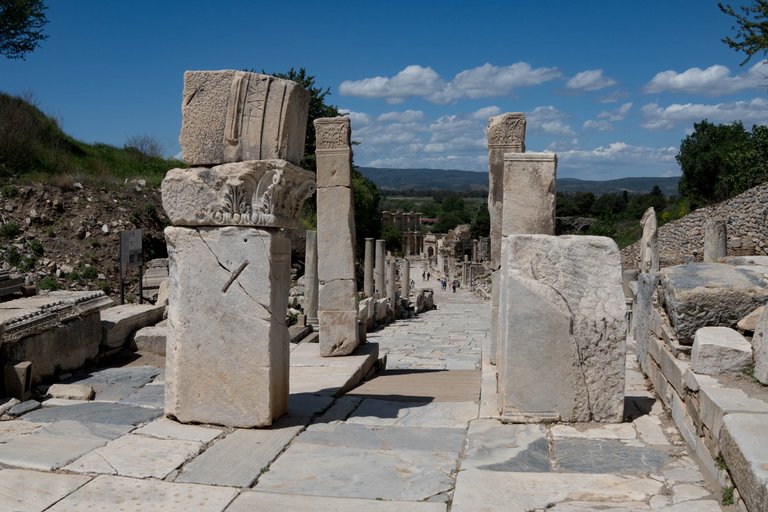
Curetes Street runs from Hercules Gate to the most recognizable site - Celsus Library.
The Curetes were semi-deities in mythology, but the term was used to refer to a class of priests and priestesses in Ephesus. The street was an archaic Processional Way, an important sacred route that leads to the Temple of Artemis. Therefore, it takes its name from the priests that would walk the street during religious ceremonies.
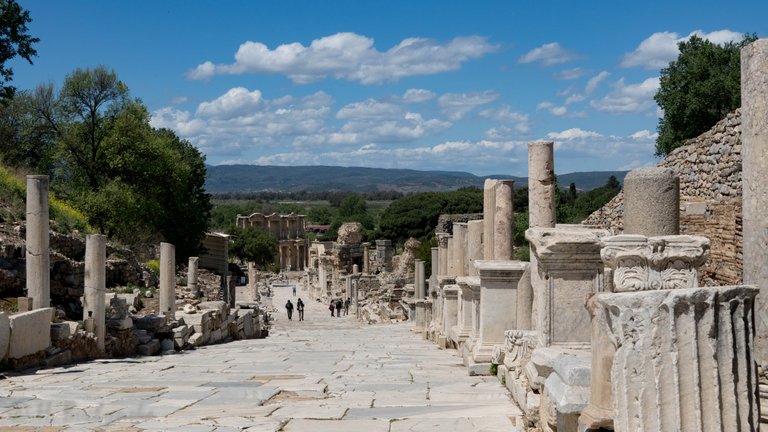
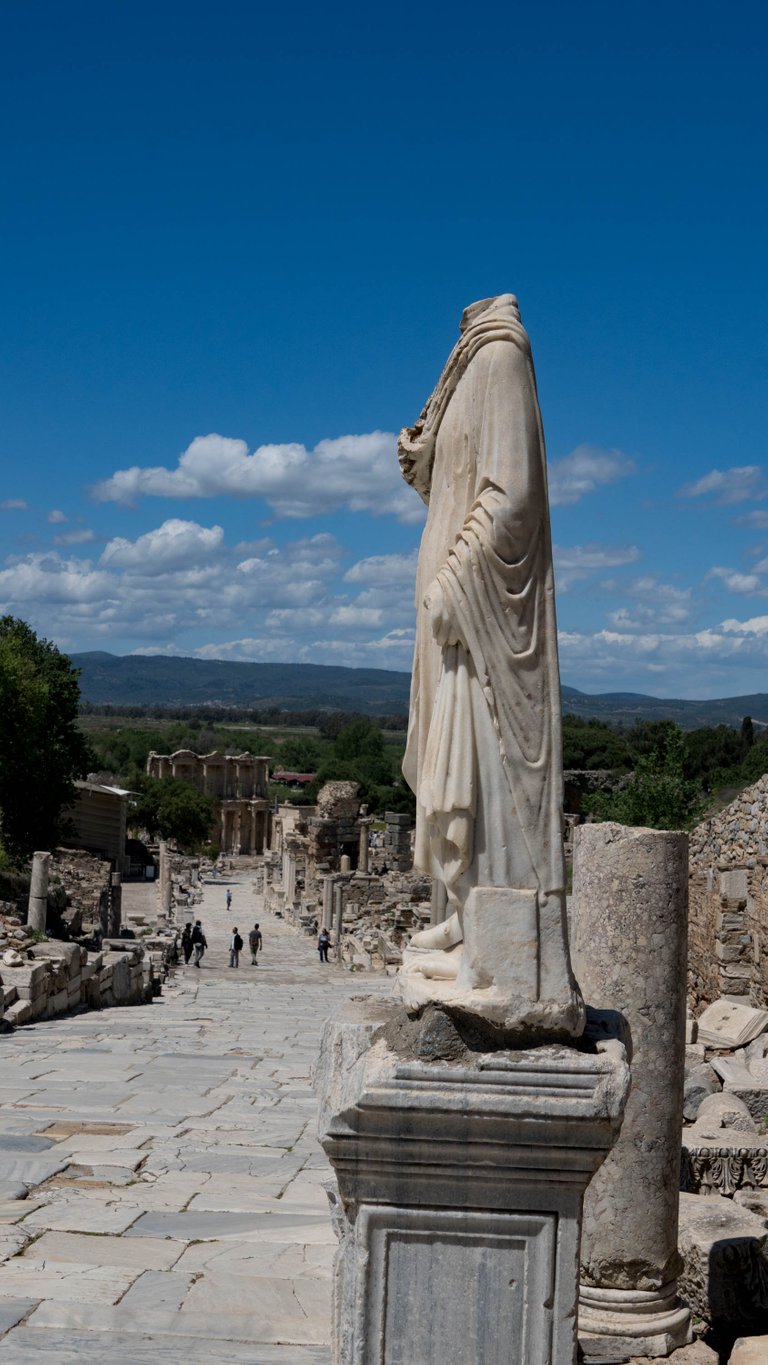
The street decorated with many fountains, monuments, and statues. There were also houses on the slope that would have been used by the wealthiest of Ephesians. Let's come and check out, all the more it's shadowy there.
Terrace Houses. There are six luxurious residential buildings that were in use from the 1st century AD through the 7th century AD. They are under a tent, and to enter here you need to scan the ticket.
This place looked awesome! It's definitely worth a visit. Gorgeous mosaic and colored marble, fountains and arches.
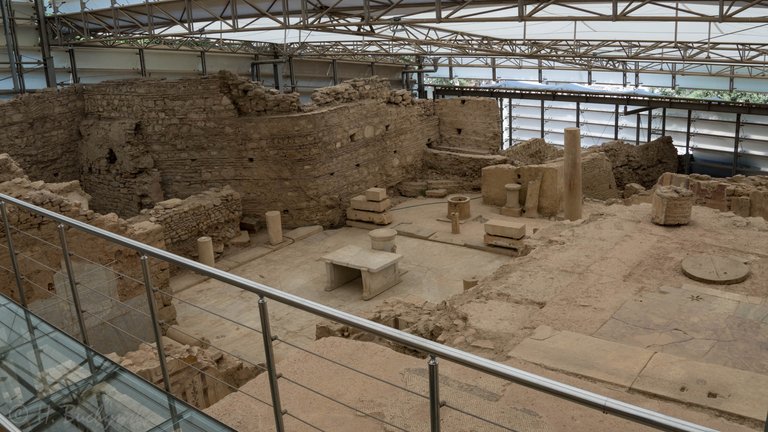
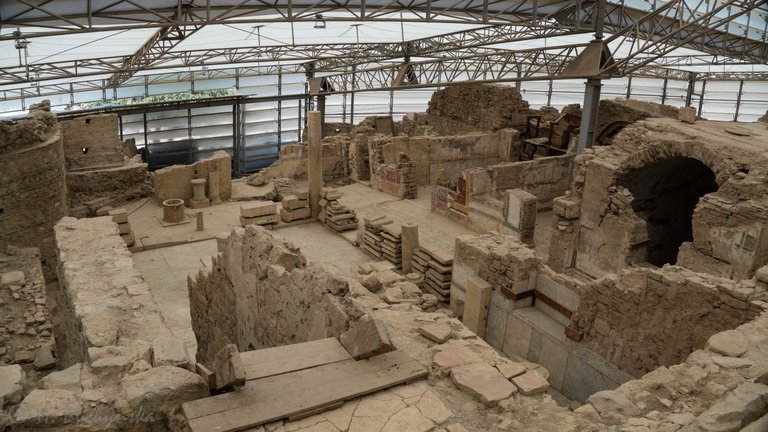
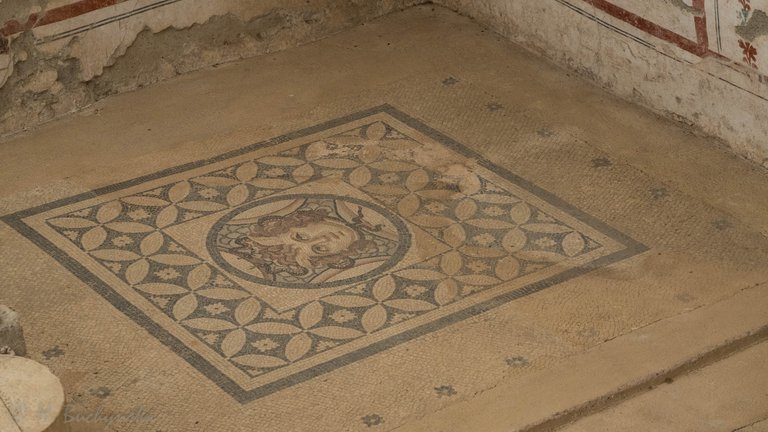
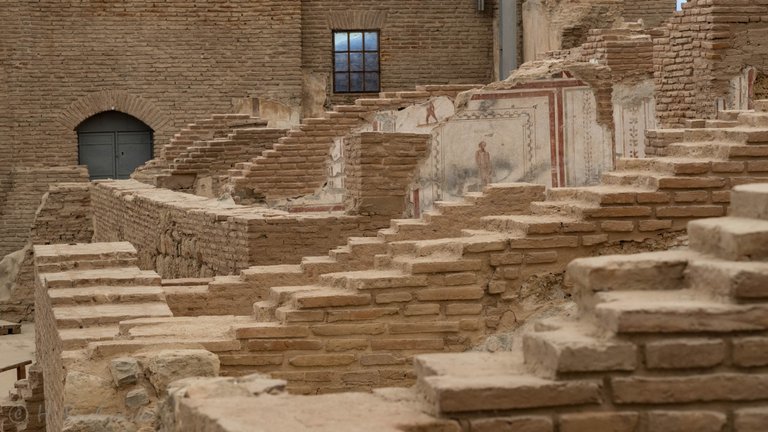
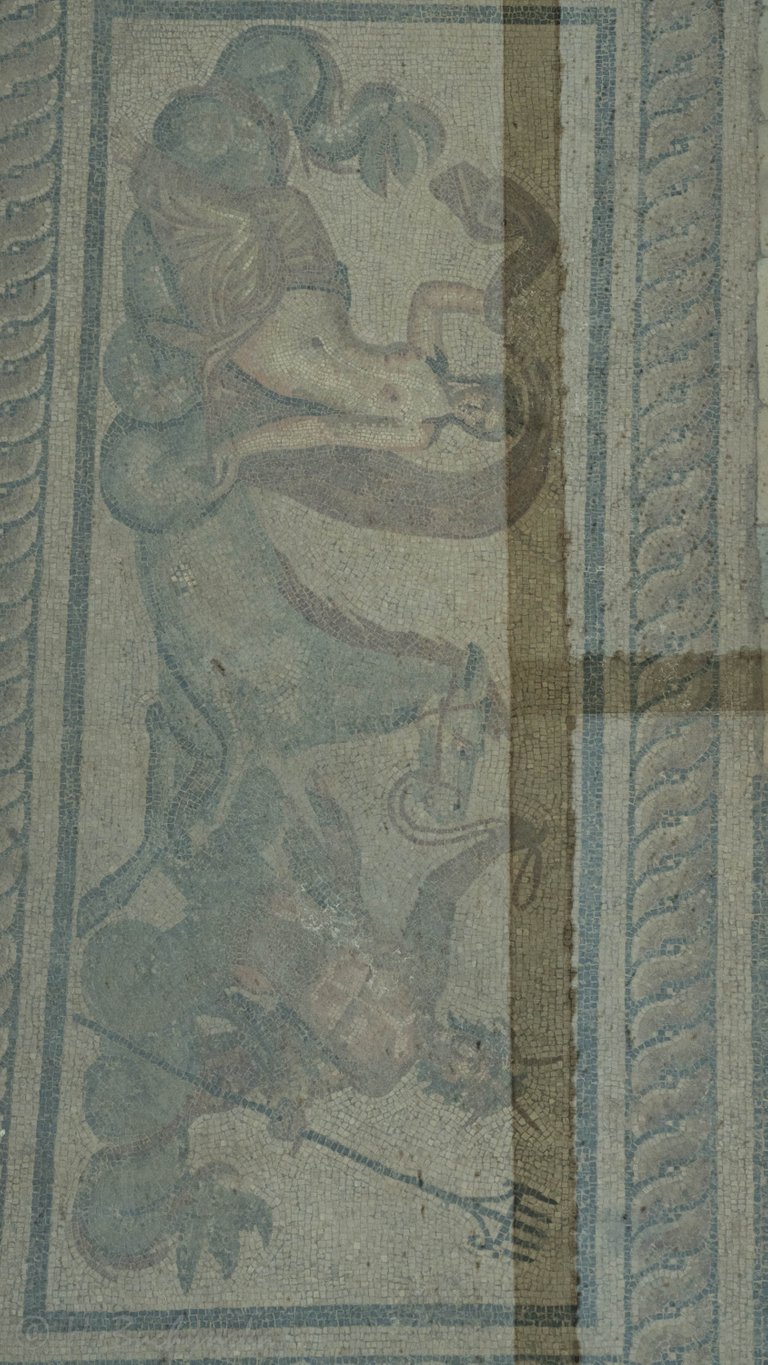
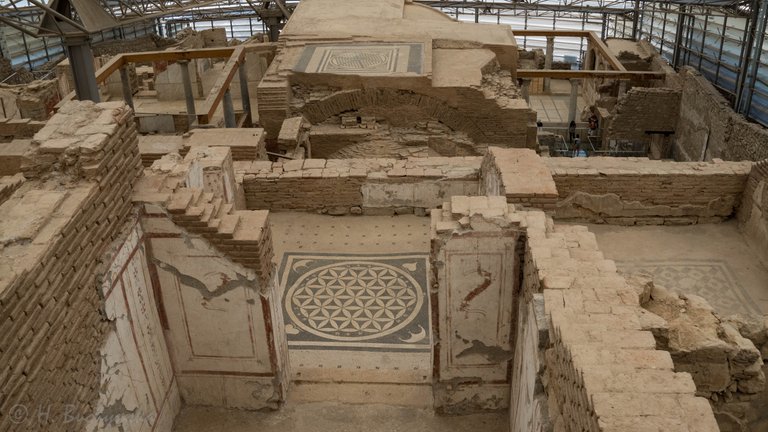
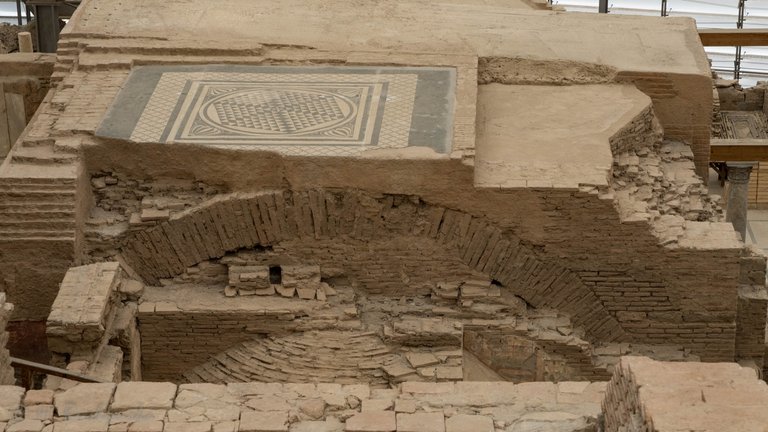
Temple of Hadrian is one of the most photogenic places. Emperor Hadrian was considered one of the Five of Good Emperors. This term is used for the Roman emperors Nerva, Trajan, Hadrian, Antoninus Pius and Marcus Aurelius.
This temple is considered one of the best-preserved and most beautiful structures on Curetes Street.
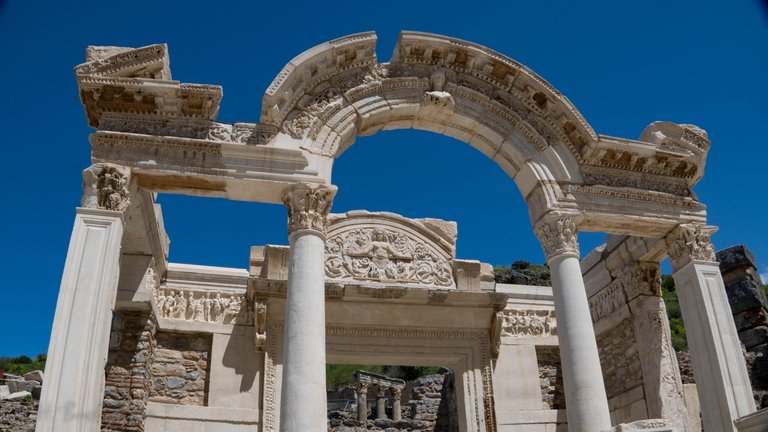
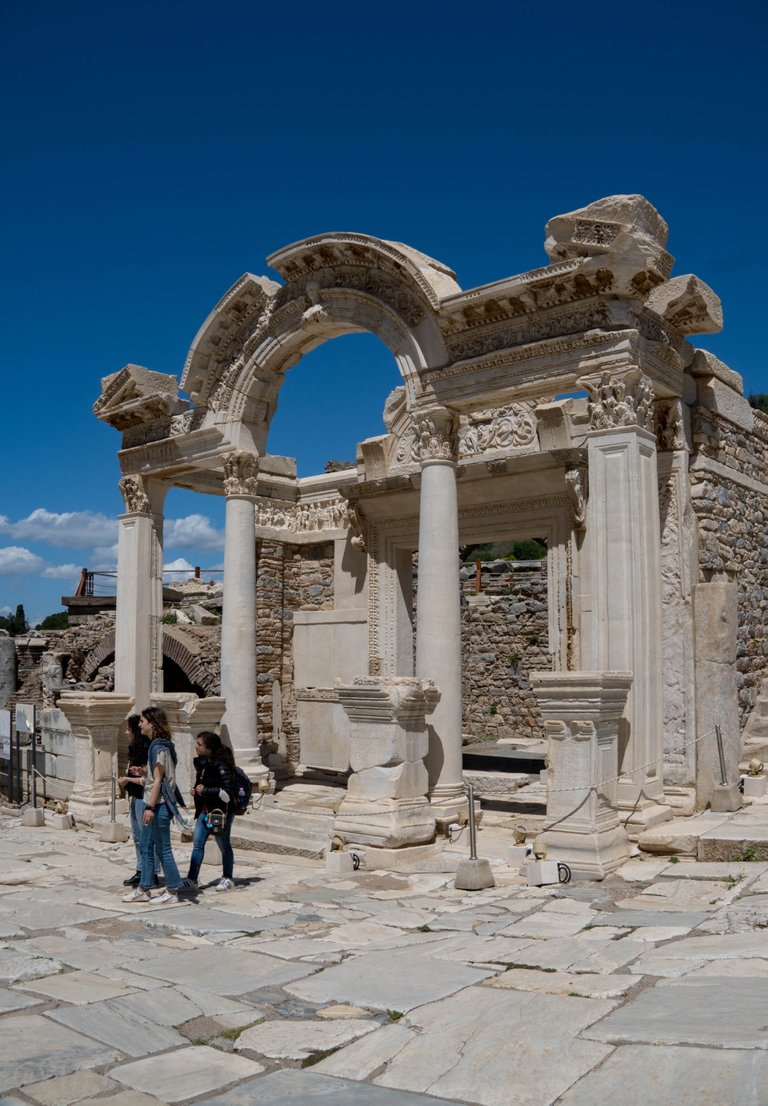
Here is it, The Celcus Library was the third largest library in the ancient world and one of the most spectacular buildings in Ephesus. That's true. It was built by the Gaius Aquila in the 1st century A.D. as a memorial for his father Julius Celsus Polemeanus. Celsus was a councilman and governor who donated 25,000 dinars for the completion and maintenance of the monumental library before his death.
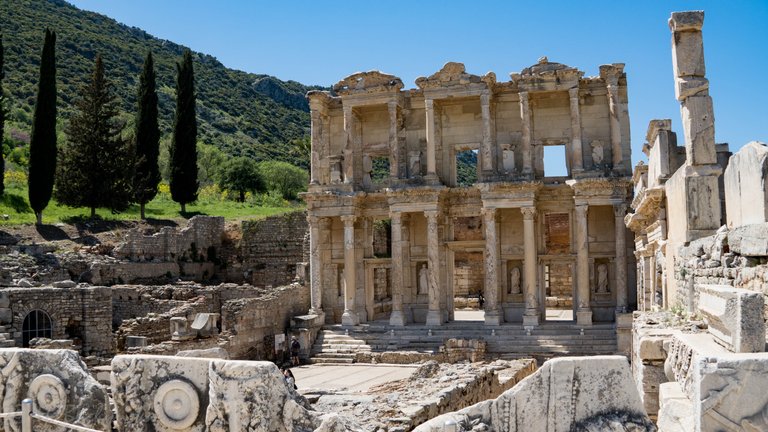
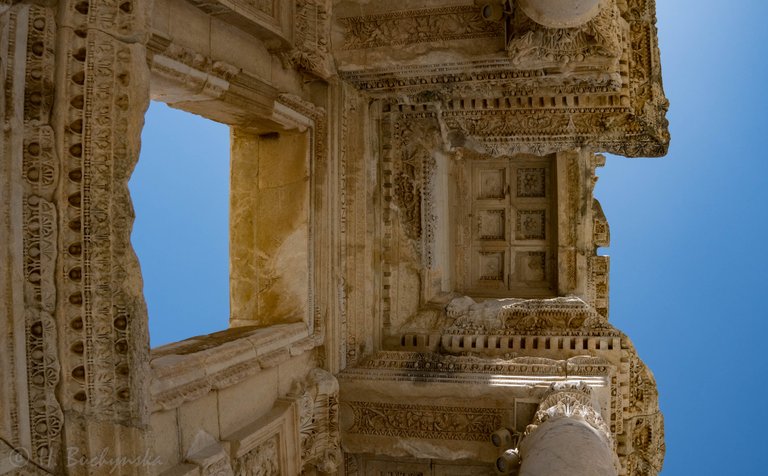
The library has been restored with the aid of the Austrian Archaeological Institute.
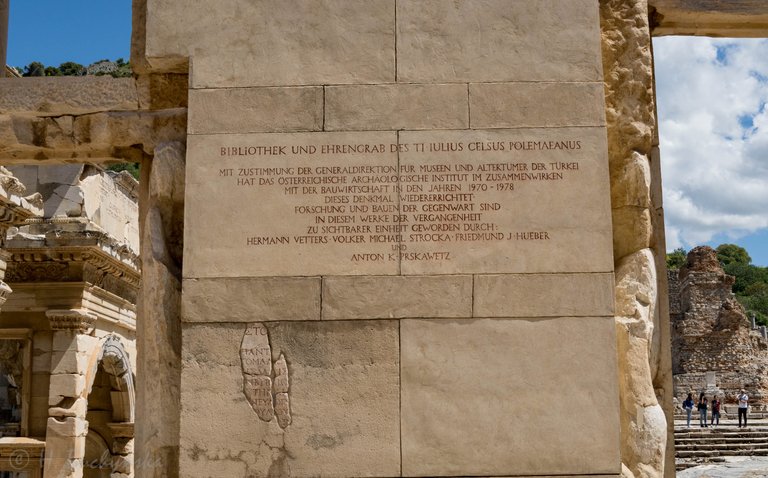
In this picture, on the right hand, you see Gate of Mazeus and Mithridates. It's a triumphal arch built in 40 A.D by the slaves Mazeus and Mythridates. You know, it's basically a Cinderella story: they built this gate in honor of the emperor Augustus who gives freedom to both of them and sent them to Ephesus to serve as officers in charge of maintaining the properties belonging to the Roman Empire.
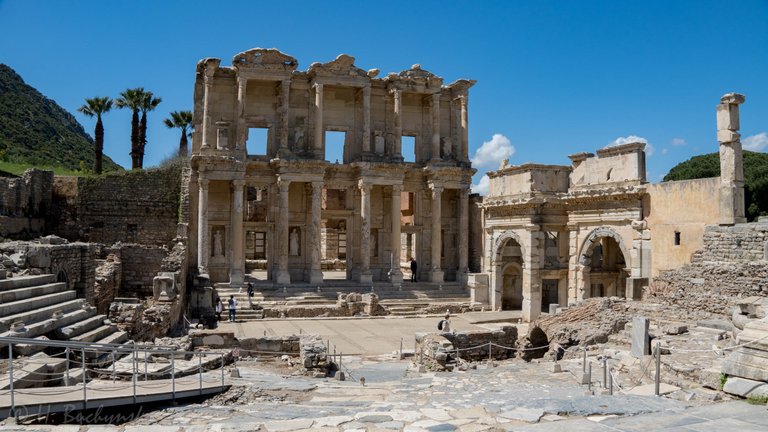
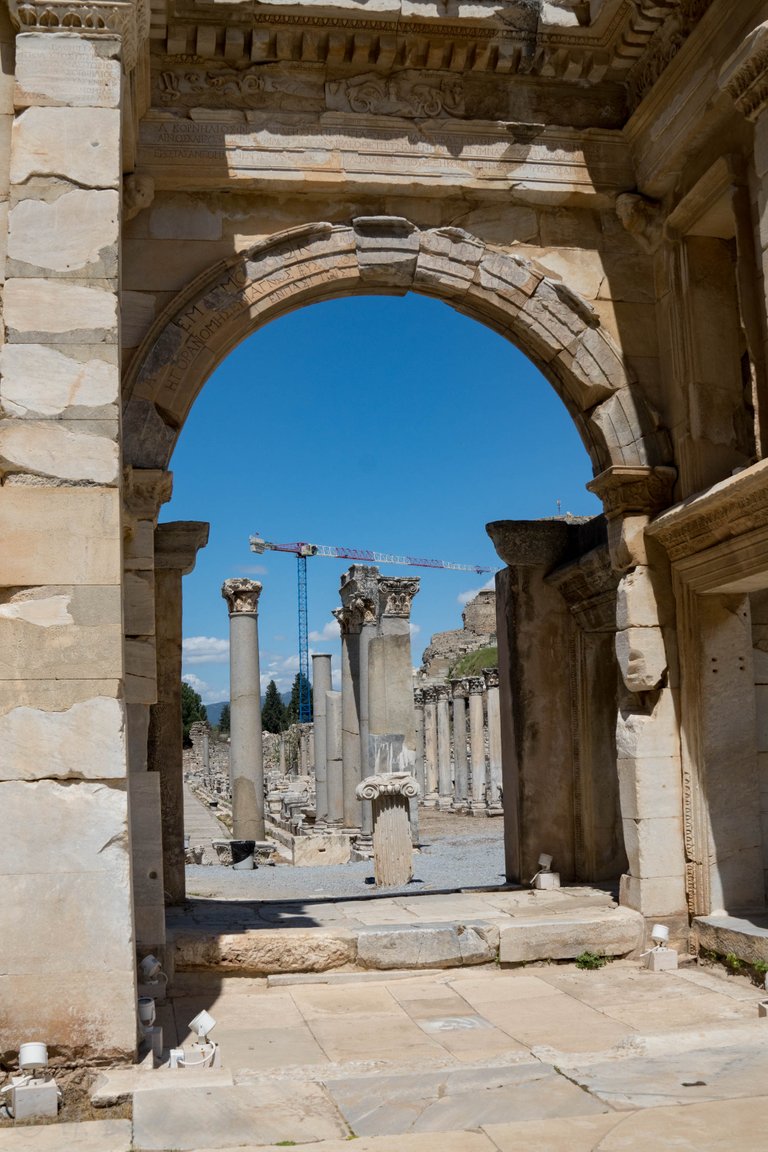
Commercial Agora is another significant trade center. By the way, Ephesus had the second largest slave market of the Ancient World.
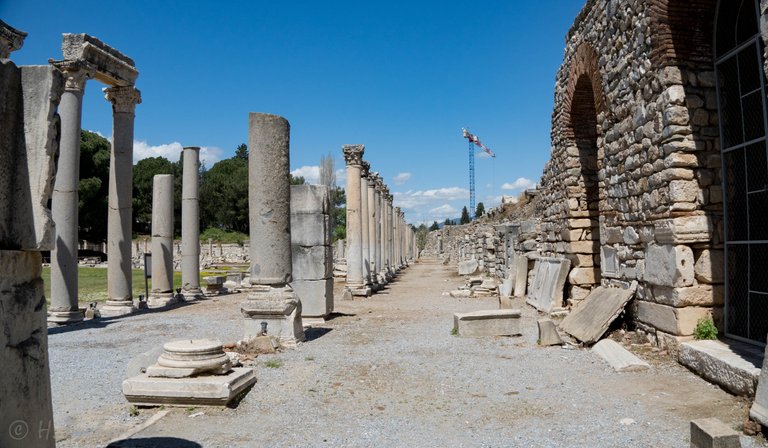
Marble Road was the main road through the city and also accepted as the holy road or Sacred Way of Ephesus. The section of the road between Celsus Library and the Commercial Agora was covered with marble plates. Mmm, how chic!
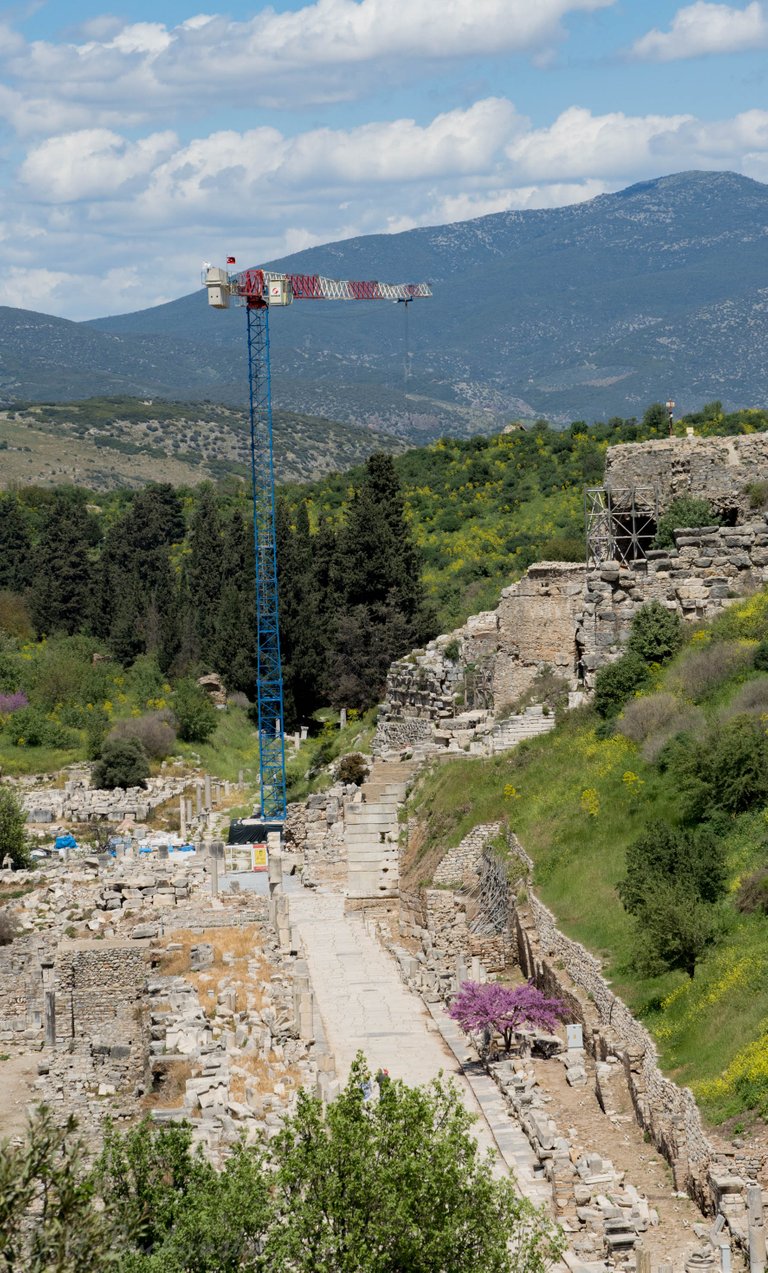
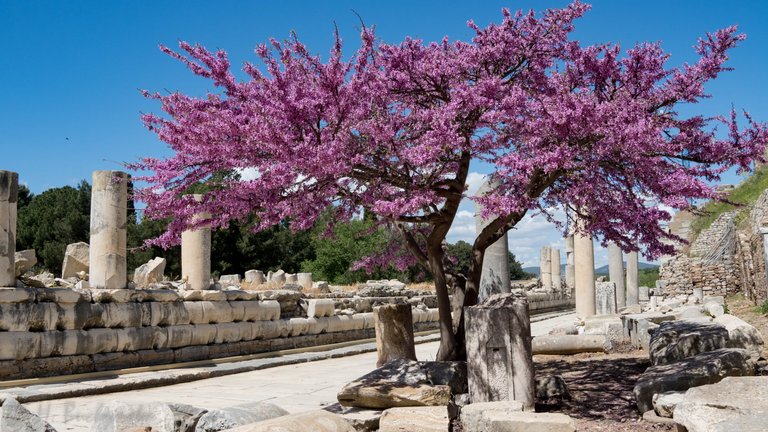
At this point, we made a stop. Waking up from delight and admiration, we realized that we were very tired of the sun and heat. After drinking some water, we felt that the time for dinner had come long ago. Time to move on, back along sacred Curetes Street...
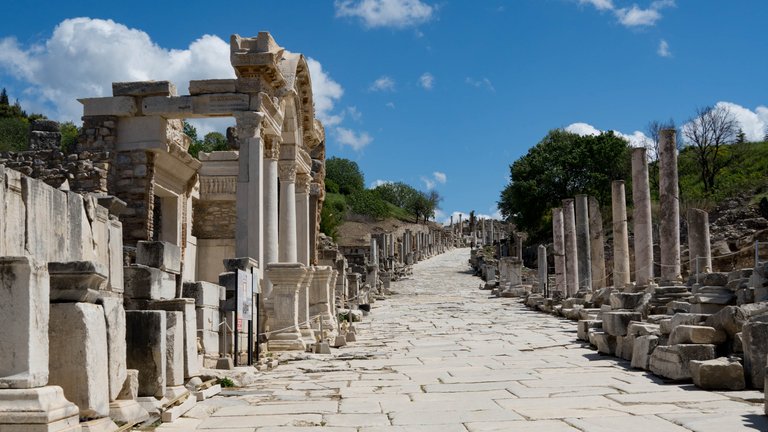

Later that day, we also visited the Basilica of St. John, just before closing. But I'm not gonna show it here because what you've just seen is much more impressive, as for me of course.
So, that's it!
Thank you for walking with me today! Hope it was interesting reading and viewing :) If yes, I hope to see you again soon.
Please note, that all photos used in my posts are taken and owned by myself. Nobody can use them without my consent. If you wish to use any of my images please contact me @zirochka.

If you missed previous parts, you can catch up with me here:
Have a good day!
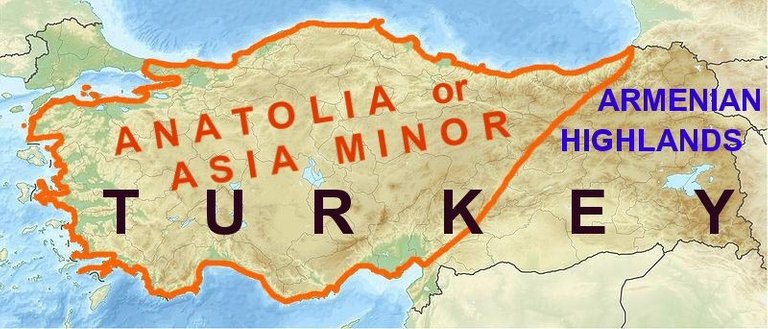
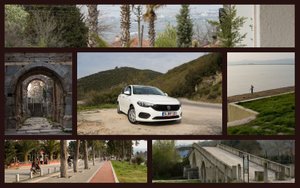
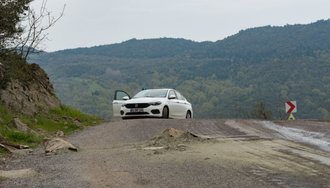
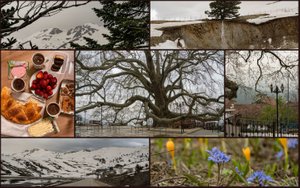
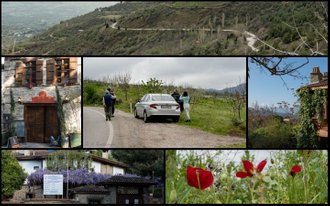

Thanks for the beer, dear @pixresteemer :)
@tipu curate 3
Upvoted 👌 (Mana: 39/78) Liquid rewards.
Thanks a million,.@crazy-andy!
So beautiful, I hope to be able to visit it one day 😍
Thank.you, and wish your wish come true soon!
View or trade
BEER.Hey @zirochka, here is a little bit of
BEERfrom @pixresteemer for you. Enjoy it!Learn how to earn FREE BEER each day by staking your
BEER.Congratulations, your post has been added to Pinmapple! 🎉🥳🍍
Did you know you have your own profile map?
And every post has their own map too!
Want to have your post on the map too?
Восхитительное путешествия. Спасибо за экскурсию!
И Вам спасибо! Рада, что понравилось
Hiya, @LivingUKTaiwan here, just swinging by to let you know that this post made it into our Top 3 in Daily Travel Digest #1214.
Your post has been manually curated by the @pinmapple team. If you like what we're doing, please drop by to check out all the rest of today's great posts and consider supporting other authors like yourself and us so we can keep the project going!
Become part of our travel community:
Thank you for sharing this amazing post on HIVE!
Your content got selected by our fellow curator @priyanarc & you just received a little thank you via an upvote from our non-profit curation initiative!
You will be featured in one of our recurring curation compilations and on our pinterest boards! Both are aiming to offer you a stage to widen your audience within and outside of the DIY scene of hive.
Join the official DIYHub community on HIVE and show us more of your amazing work and feel free to connect with us and other DIYers via our discord server: https://discord.gg/mY5uCfQ !
If you want to support our goal to motivate other DIY/art/music/homesteading/... creators just delegate to us and earn 100% of your curation rewards!
Stay creative & hive on!